
BAGHDAD, July 29 (Xinhua) -- A wave of 17 apparently-coordinated car bombings hit the Iraqi capital and several southern cities on Monday, killing dozens and wounding over 200 others, according to authorities and media reports.
Up to 12 car bombs ripped through Baghdad during the morning rush hours in attacks mainly targeting the Shiite-dominated neighborhoods of Sadr city, Habibiya, Bayaa, al-Horreya, Risala, and al-Shaab, killing at least 23 people and wounding 132 others, official sources told Xinhua.
The blasts prompted the Iraqi security forces to intensify security measures at dozens of checkpoints on main streets across the capital, causing severe traffic jam as thousands of civilian cars were waiting for crossing the points.
Four more were killed in a bombing in the city of Mahmoudiya, about 30 km south of the capital.
Meanwhile, two car bombs and a roadside bomb struck a crowded parking lot in the city of Kut, some 170 km southeast of Baghdad, killing at least 10 people and wounding some 40.
Two more car bombs exploded the city of Simawa, some 270 km south of Baghdad, killing five people and wounding 21, a local police source anonymously told Xinhua.
In the southern oil hub of Basra, a car bomb went off in northern the city, some 550 km south of Baghdad, killing two people and wounding eight others, a local police source said.
In Iraq's Salahudin province, a roadside bomb exploded near the convoy of Lieutenant Colonel Hammad al-Dulaimi, a provincial police commando chief, near the city of Baiji, some 220 km north of Baghdad, destroying the car and killing the police chief, his aide and two bodyguards aboard, a provincial police source told Xinhua.
No group has so far claimed responsibility for the bombings, but the al-Qaida front in Iraq, in most cases, was responsible for such violent attacks in the country.
Monday's bombing spree came after 14 people were killed in attacks across the country on Sunday.
Last week, dozens of gunmen stormed Taji and Abu Ghraib prisons, respectively north and west of Baghdad, in an attempt to free prisoners.
Iraq is witnessing its worst eruption of violence in five years, raising fears that the latest bloodshed is bringing the country back to a full-blown civil conflict that peaked in 2006 and 2007, when the monthly death toll sometimes exceeded 3,000.
UN envoy to Iraq Gyorgy Busztin said in a statement that he was "deeply concerned about the heightened level of violence which carries the danger that the country falls back into sectarian strife."
Butszin called for Iraqi political leaders to act immediately and decisively to tame the surge of violence.
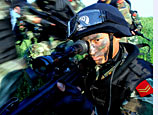
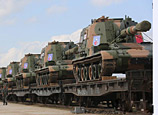
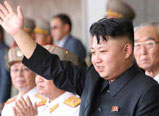
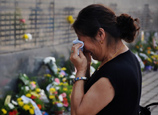

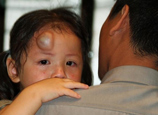










 Singer in spotlight after blog post
Singer in spotlight after blog post


![]()
